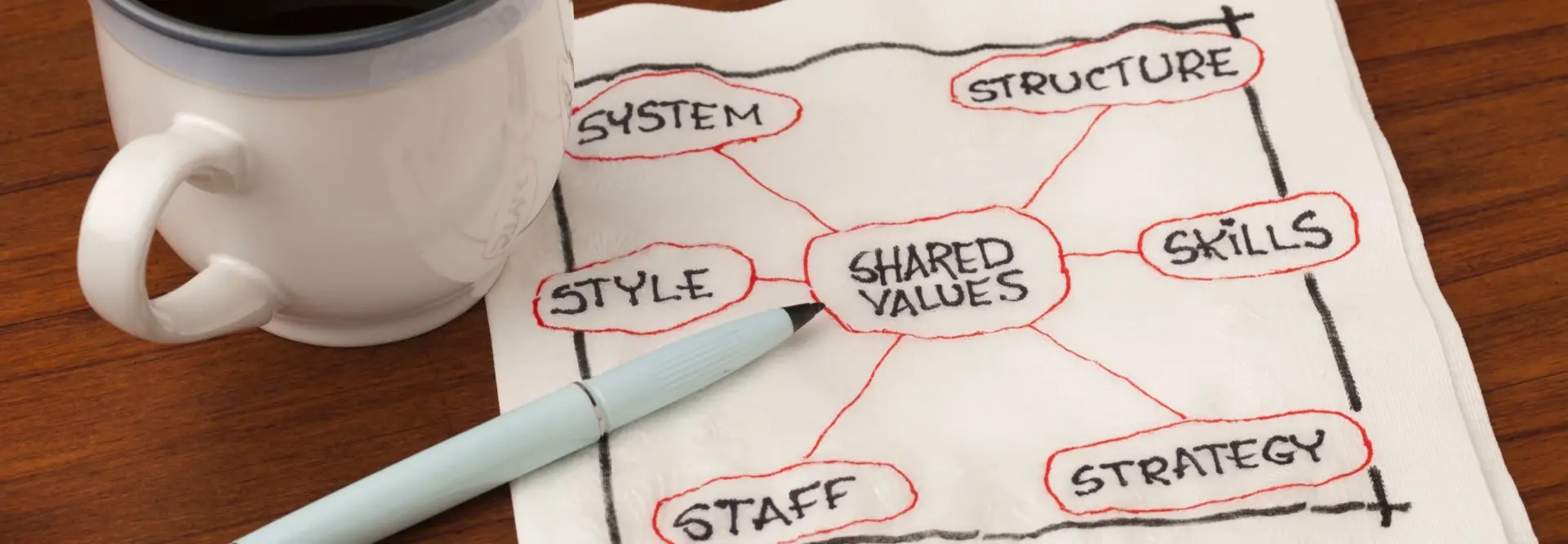From boardroom to battlefield
Organizational development
An organization is dynamic and is, therefore, constantly under development. The question is if the development that is going on is driving the company towards its goals, supporting the strategy, or if we need to think about the consequences in other parts of the company and how our value chain throughout the company is combined.
Organizational development in a corporate setting focuses on how it helps businesses improve their;
- Efficiency
- Productivity
- Overall performance
But also, to discuss different strategies, such as.
- Leadership development
- Employee engagement
- Process optimization
And how these initiatives can benefit companies in various industries.
Leadership, teamwork, and adaptability are crucial elements for an organization to succeed, as we are all just a puzzle in the big game.
Great things in business are never done by one person; they are done by a team of people
Steve Jobs
For me, organizational development is a process that focuses on developing the organization as a whole, including its structure, culture, systems, and processes.
Developing organizations is often complex as there are many perspectives to be aware of and areas to include in the development. Some of these could be:
- Alignment with business goals: Organizational development aligns a company's structure, systems, and processes with its strategic objectives. By ensuring that everyone within the organization understands and works towards the same goals, business become more cohesive and focused.
- Adaptation to change: In today's rapidly evolving business landscape, organizations that adapt quickly are more likely to succeed. Organizational development helps companies embrace change by identifying the need for change, implementing effective strategies, and managing the transition smoothly.
- Improve employee Satisfaction: Organizational development prioritizes employee satisfaction. When employees feel valued, have clear goals, and are given opportunities for growth, they tend to be more satisfied and engaged. This results in higher morale, reduced turnover, and better customer service.
- Improved efficiency: Organizational development identifies areas where processes can be streamlined, eliminating redundancy and inefficiency. By analyzing workflows, improving communication, and optimizing resource allocation, organizations can achieve higher levels of efficiency.
- Enhanced productivity: By fostering a culture of continuous learning and development, organizational development improves employee productivity. It encourages teams to acquire new skills, work collaboratively, and embrace innovation. This leads to an engaged and motivated workforce, resulting in increased productivity.
- Attracting and retaining employees; Effective organizational development strategies focus on attracting, developing, and retaining talent. By providing opportunities for career growth, offering training and development programs, and fostering a supportive work environment, businesses can attract skilled individuals and ensure their long-term commitment. People go to work to make a difference and to support a higher goal.
- Cultivation innovation: Organizational development fosters a culture of innovation by promoting open communication, collaboration, and creative thinking. It encourages employees to contribute ideas, experiment, and embrace change. This allows businesses to stay ahead of the competition and adapt to market dynamics.
Organizational development is indispensable for businesses seeking to improve their efficiency, productivity, and overall performance. It provides a framework for managing change, enhancing employee satisfaction, and aligning the organization with its strategic goals. Companies can create a more agile and successful enterprise by investing in organizational development.
Focused Mindset helps both large and small organizational development projects, if needed, in collaboration with our firm and skilled partners.
Why hire a consultant for organizational development?
- Expertise and experience: Organizational development consultants specialize in working with various organizations across industries. They bring a wealth of knowledge and experience in diagnosing organizational issues, implementing effective strategies, and navigating complex change processes. Consultants can provide fresh perspectives, insights, and best practices that may not be readily available within the organization.
- Objectivity and Independence: Consultants offer an external viewpoint that can be valuable in assessing organizational dynamics and identifying areas for improvement. Since they are not directly involved in the day-to-day operations, they can provide unbiased opinions and recommendations. Their neutrality allows them to objectively analyze the organization's strengths, weaknesses, opportunities, and threats, enabling them to suggest appropriate actions.
- Time and resources: Organizational development initiatives often require dedicated time and resources, which can be challenging for internal teams already consumed by their regular responsibilities. Hiring a consultant allows organizations to leverage external expertise and free up internal resources, enabling the teams to focus on their core duties while the consultant drives the OD process forward.
- Specialized Tools and Methods: Organizational development consultants possess a range of specialized tools, frameworks, and methodologies that they have developed or acquired through their experience. These tools are designed to diagnose organizational dynamics, gather data, analyze findings, and design tailored interventions. By leveraging these tools, consultants can provide organizations with robust, evidence-based solutions customized to their specific needs.
- Change management expertise: Consultants often have specific expertise in change management, which is crucial for implementing successful organizational development initiatives. They are skilled at navigating resistance to change, managing stakeholders, and creating buy-in for new initiatives. They can develop comprehensive change management plans and help organizations overcome barriers, ensuring a smooth transition and increased chances of success.




